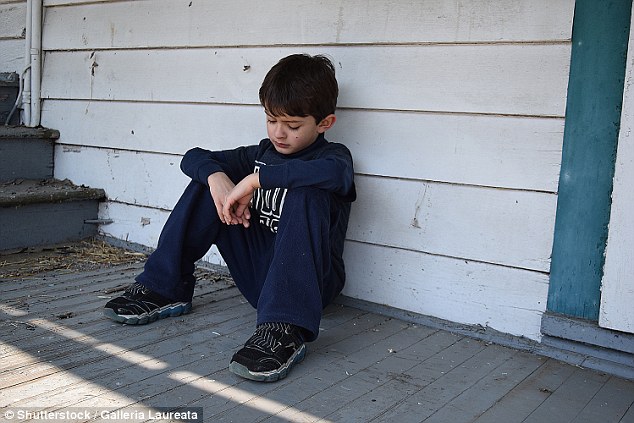People’s future health may be decided at just 10 years old, new research suggests.
Children from disadvantaged homes have reduced wellbeing as older adults regardless of how comfortable their teenage or middle-aged years were, a study found today.
Researchers believe underprivileged upbringings may cause youngsters stress, which could lead to inflammation that affects their immunity and overall health in later life.
Study author Boris Cheval from the University of Geneva, said: ‘Our study suggests a direct, biological and lasting effect of a poor start in life.’
Stéphane Cullati, who was also involved in the study, added: ‘A growing body of scientific evidence indicates that the social is incarnated in the body, and thus shows the urgency, when it comes to health, to consider individuals under all of their life circumstances.’
How the research was carried out
The researchers analysed 24,179 people aged between 50 and 96 years old living in 14 European countries.
The study’s participants’ hand strengths were assessed via a handheld device.
Such strength is considered a good indicator of overall health in old age.
These results were compared against the following four indicators of financial comfort in early life: the primary earner’s occupation, the number of books in their home, housing quality and the number of people living in the household relative to the number of rooms.
Poor hand strength is associated with disadvantaged childhoods
Results further reveal poor hand strength in later life is associated with having had a disadvantaged childhood.
The findings also show older Scandinavians are in better health than their fellow European counterparts regardless of their upbringings.
This is thought to be due to their broad access to healthcare and education.
The findings were published in the journal Age and Ageing.
Children from poor families are more likely to start puberty early
This comes after research released in June last year suggested children from poor families are up to four times more likely to start puberty early.
Boys are at the greatest risk, yet disadvantaged girls are still twice as likely to prematurely develop breasts or pubic hair, the study found.
Researchers believe this may be due to poverty causing youngsters stress, which then leads to the early release of reproductive hormones.
Previous studies suggest an early puberty increases a person’s risk of certain cancers, such as breast and endometrial in women, and prostate in men.
A past trial’s author says parents can help delay their child’s puberty onset by encouraging them to exercise and eat well.
This is due to overweight youngsters having more energy reserves that ‘trick’ the body into sexually maturing.












